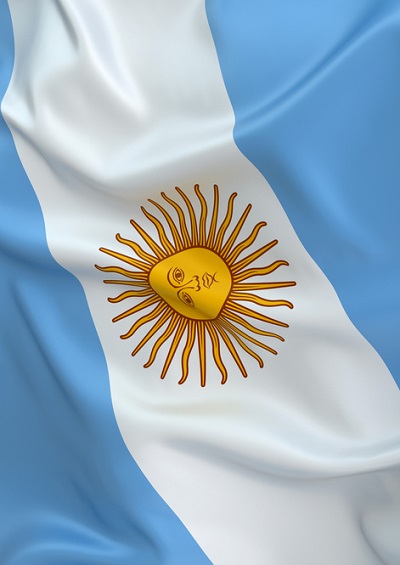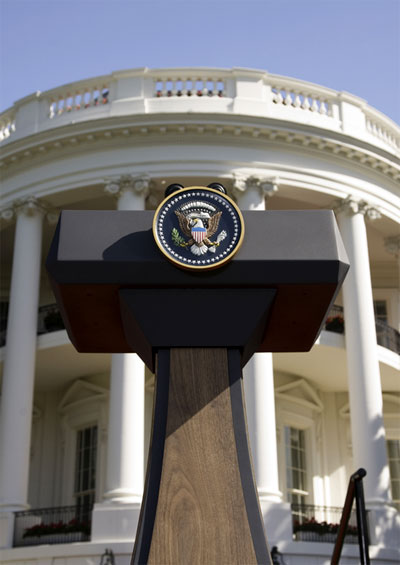Argentina: Heading for Financial and Political Mayhem
Argentina’s voters, foreign institutional investors and the International Monetary Fund (IMF) never seem to learn from previous calamities.
September 19, 2019

Argentina never learns. Yet again, the country’s economy is in a mess and is destined to head for disaster. Yet again, the recent crop of Argentina’s corrupt politicians is set to return to power.
It is as if Argentina’s voters, foreign institutional investors and the International Monetary Fund (IMF) never seem to learn from previous calamities.
Maybe these forces are all so busy dancing tango late into the night that they forget that, when the music stops and the dawn sun rises, they will have to face harsh realities.
Argentina holds presidential elections on October 27. Until then, financial markets will be in a state of extreme nervousness, which — based on past experience — only serves as a precursor to a full-scale crisis.
One thing is now certain: President Mauricio Macri, an honest and well-intentioned leader, will not be re-elected.
Major tests ahead
First, there could well be a governance crisis. Peronist coalition leader Alberto Ángel Fernández beat Macri by more than 15% in an August primary and seems certain to win the election.
This seems almost inevitable as he recently agreed that former president Cristina Fernández de Kirchner, who has her own strong political base, shall serve as the next vice president. The two may tussle and I would not be surprised if Cristina emerges as the real power in the land.
Second, international bondholders may have lost their memory of the fact that they lost their proverbial shirts when Argentina defaulted in 2001. They may feel reminded of that episode when they will soon do so again.
Infecting emerging market bonds
It would be bad enough if it was Argentina alone that is in the throes of a crisis. However, the impact could well reach across emerging market bonds.
International bond markets are already facing multiple problems for many reasons, including negative interest rates in some countries and very high debt levels in a number of large economies. Yet another Argentine debt debacle could have contagion consequences.
Third, in coming days the IMF must decide on extending around $5.4 billion of its current $57 billion program to Argentina – the largest program in the Fund’s history.
It will then have to determine what happens if Argentina cannot service its IMF debt burden. This will be a formidable test for the — likely by then — brand-new managing director of the IMF, Kristalina Georgieva.
Corruption wins!
It was evident one year ago in Argentina that Macri’s political future was in doubt and Kirchner’s star might shine again. True, Macri’s tepid economic reforms were inadequate. But he had inherited a large budget deficit, soaring inflation and currency jitters.
The IMF did come to his rescue — but at the price of forcing an austerity program that has proven to be a major vote-loser.
Cristina Kirchner escaped jail only because she is an elected member of the Senate. Even so, she still faces multiple charges of corruption and could end up spending a lot of time in 2020 in court.
Her election as vice president, however, will probably see the Argentine justice department drop the indictments against her. Similarly, graft charges may be dropped against some of her old associates and cronies and so soon the old ways of looting the government coffers may begin again.
And it is worth noting that Alberto Fernández, the current Peronist coalition leader and likely new President, secured his rise to political prominence as chief of staff of president Nestor Kirchner from 2003 onward. He continued for a while in that post under president Cristina Kirchner and supported her election.
An economic nightmare
Macri won international investor confidence after his election and so the country amassed about $50 billion of foreign-held debt, which together with the IMF credits takes the total foreign debt to more than $100 billion.
Argentine stock market equity prices are down by more than 70% in dollar terms from 2018 peaks, inflation exceeds 50%, interest rates at the central bank debt auction have hit 85% and the currency which declined by as much as 60% has been stabilized for the time being by the imposition of currency controls.
Investors see it as pointless to enter debt restructuring negotiations with the lame-duck Macri regime, while Fernández, apart from publicly blasting the IMF (which always goes down well with voters) has offered no clues as to the kind of restructuring terms he would accept.
Predictably, the presumable new president is campaigning on a program to end austerity and boost public spending. This means probably violating IMF conditions and will likely further damage international investor confidence.
IMF challenge
As fortune has it, this is the very moment when Christine Lagarde departs the leadership of the IMF to move to the helm of the European Central Bank.
Lagarde was a powerful advocate of the Argentina program. As the executive board of the IMF received only one candidate to replace Lagarde as managing director it has no choice other than to appoint the EU’s choice.
Bulgarian Kristalina Georgieva has outstanding international institutional experience. She previously served as a human rights commissioner in the EU and as chief executive at the World Bank.
However, unlike all previous IMF leaders, she has never been either a finance minister or a central banker. She has no experience of managing short-term major financial crises, or the kind of immediate challenges that the Fund now confronts with Argentina.
The one silver lining is that Georgieva has extensive experience of seeking to counter corruption. She will almost certainly build on Lagarde’s initiative to strengthen the IMF’s anti-corruption work.
Given the prospective return to power in Buenos Aires of Cristina Kirchner, it will be very interesting to observe whether or not the IMF will show that it will finally be tough in the face of kleptocracy.
Takeaways
Yet again, Argentina’s economy is in a mess and is destined to head for disaster.
Argentina’s voters, foreign institutional investors and the IMF never seem to learn from previous calamities.
Unlike previous IMF leaders, Kristalina Georgieva has never been either a finance minister or a central banker.
It will be interesting to observe whether or not the IMF will finally be tough in the face of kleptocracy.

